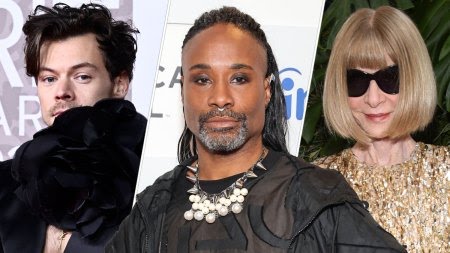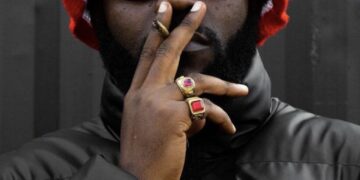Billy Porter is taking aim at Anna Wintour and Harry Styles following the cover of Vogue magazine where the “Watermelon Sugar” singer was featured wearing a dress.
In a new interview, Porter opened up about his feelings about Styles being the first solo male to grace the cover of the fashion magazine. The Pose actor said he had talked to Wintour months before the cover with the former One Direction member was released but was taken aback by the magazine’s editor.
“That b**** said to me at the end, ‘How can we do better?’ And I was so taken off guard that I didn’t say what I should have said,” Porter told The Telegraph later adding what he should’ve said, “Use your power as Vogue to uplift the voices of the leaders of this de-gendering of fashion movement … Six months later, Harry Styles is the first man on the cover.”
Billy Porter Joins Producing Team Of Broadway-Aimed Billy Strayhorn Bio-Musical Starring Darius De Haas
Porter acknowledges that he doesn’t blame Styles for the decision to feature him on Vogue saying, “It’s not Harry Styles’s fault that he happens to be white and cute and straight and fit into the infrastructure that way … I call out the gatekeepers.”
He continued by explaining why Styles was selected saying he’s “white and he’s straight. That’s why he’s on the cover. Non-binary blah blah blah blah. No. It doesn’t feel good to me. You’re using my community – or your people are using my community – to elevate you. You haven’t had to sacrifice anything.”
This is not the first time that Porter makes a public statement about the December 2020 Vogue cover with the “As It Was” singer. Back in 2021, Porter said, “I feel like the fashion industry has accepted me because they have to. I created the conversation [about nonbinary fashion] and yet Vogue still put Harry Styles, a straight white man, in a dress on their cover for the first time. I’m not dragging Harry Styles, but… He doesn’t care, he’s just doing it because it’s the thing to do. This is politics for me. This is my life.”
Porter would later apologize for mentioning Styles saying the conversation was not about him but the “systems of oppression and erasure of people of color who contribute to the culture.”








